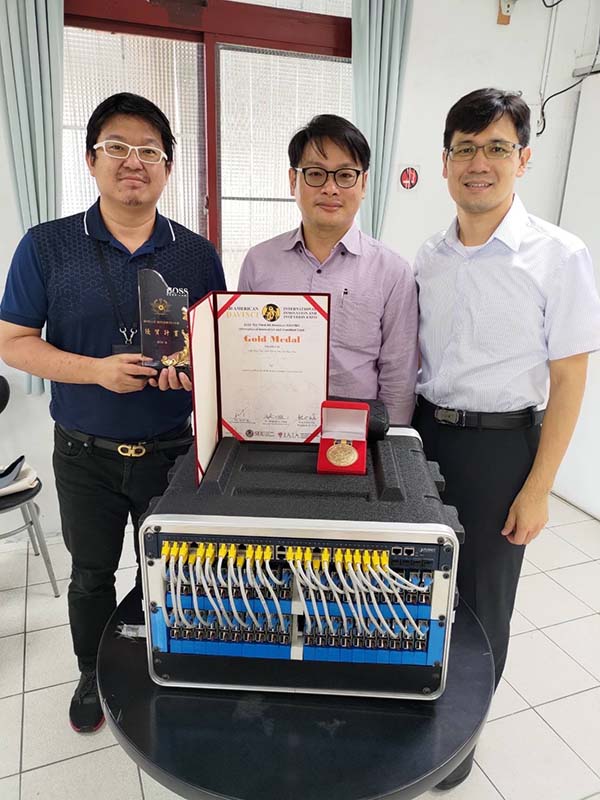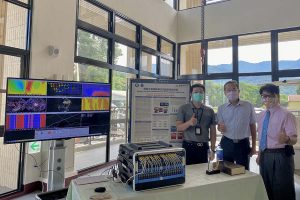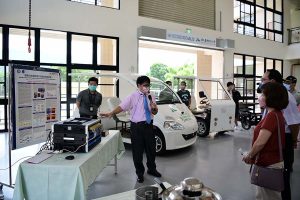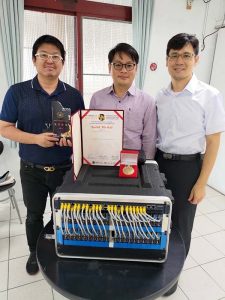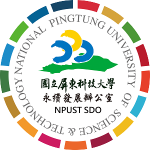Researchers from NPUST, Academia Sinica, and the Taiwan Air Force have jointly developed a real-time AI weather forecasting system, which can be carried in a suitcase.
The system was created through the cooperation of Professor Uzu-Kuei Hsui, Director of the NPUST Program of Artificial Intelligence and Mechatronics, Dr. Chih Ying Chen of the Research Center for Environmental Changes at Academia Sinica, and Associate Professor Nan-Ching Yeh of the Air Force Institute of Technology, Department of Military Meteorology. For the project, the team also collaborated with Professor Kuo-lin Hsu, deputy director of the Center for Hydrometeorology and Remote Sensing (CHRS)— the top center for rainfall prediction in the United States.
Through data assimilation, the new invention is able to incorporate high spatio-temporal resolution data from Doppler Wind Lidar into its modeling. And by integrating information from multiple meteorological databases, including NCEP, NCAR, and the WRF, the researchers were able to create a high-temporal and spatial modeling system that can greatly improve wind and precipitation forecasting at air fields.
The invention won the gold medal at the 2022 AII American DAVINCI International Innovation and Invention Expo and the “Excellent Project Award” from the Taiwan Ministry of Defense at the annual National Defense Science and Technology Academic Research Cooperation Awards.
Weather forecasts, such as those generated by the Central Weather Bureau, are generally macro in scale; but airports depend on accurate information that is kept up-to-date on a “medium”, hour-by-hour, basis. When conducting wartime operations, however, the military must be able to predict wind and precipitation within a 30-minute window—also known as microscale forecasting. In the United States, where microscale forecasting is used to predict tornado activity, modeling depends on large and expensive computers. The new system, however, is low cost and has a more flexible application. Combining AI and machine learning, the instrument receives meteorological data from satellites and stations in real time, and can generate accurate predictions of weather fluctuations within a 30-minute time frame.
Professor Uzu-Kuei Hsui of NPUST was born into a military family and served as a professor at the Air Force Academy until he retired as a colonel. Over the years, he has made many brilliant contributions in the field of aerospace and earned himself such monikers as “National Defense Invention King” and “Air Force Edison”, with 45 patents under his belt so far. He has also guided students to win awards at many international invention competitions. In addition to his strong R&D capabilities, Professor Hsui has been greatly committed to talent cultivation, and with support from the Taiwan Fund for Children and Families and the Rotary Club, he has held various science camps for rural primary and secondary school children over the years.
Professor Hsui’s contributions have been a benefit to society and a source of inspiration to young learners. And as carries on his research at NPUST, he hopes to pass down a tireless spirit of learning to his students, and encourage them to take advantage of the resource-rich education that the university offers as they explore knowledge, come up with new ideas to meet modern needs, and become “NPUST Invention Kings” together!



